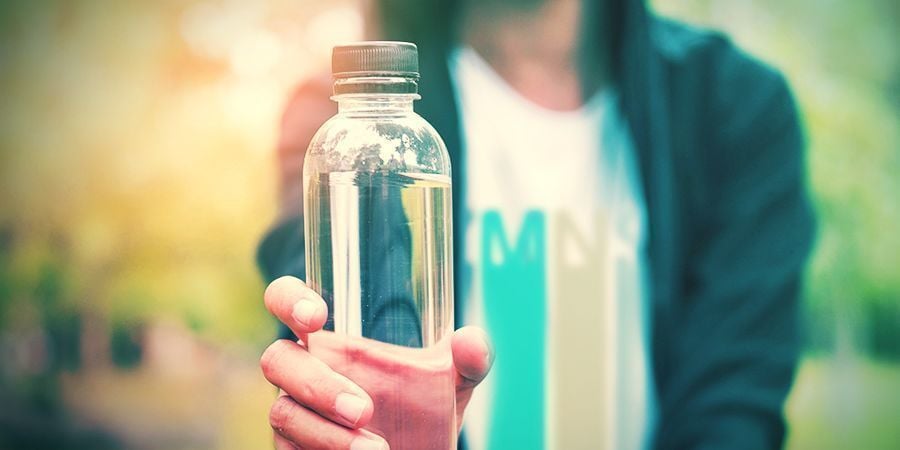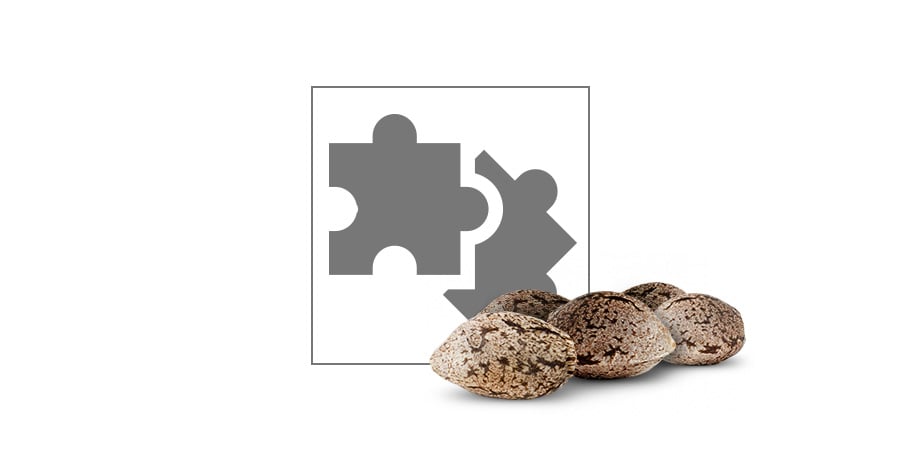
Is It Ever A Good Idea To Mix Alcohol And Weed?
Mixing alcohol and cannabis can be fun sometimes, but it's important to know what they do to your body when combined.
Imagine the scene: You're out at the club with your friends on a Friday night, you've had a few drinks, and you're having a great time. One of your friends pokes your shoulder and has an interesting idea: "Want to smoke a joint outside?". You have work the next morning, but it's still pretty tempting. So, what do you do?
WEED AND ALCOHOL: FRIENDS OR ENEMIES?
Generally speaking, we recommend not combining alcohol and weed. That being said, we care more about keeping people safe than telling them what to do. You don't have to worry about hurting yourself with the combo, but doing it right is the key to having a good time with both substances. If you play it safe, you'll enjoy a more intense, yet still pleasant, high. If you go overboard one way or the other, however, you'll be in for a nauseating and uncomfortable ride.
WHAT ARE THE EFFECTS WHEN MIXING?

Not very much research has been done into the combined effects of alcohol and marijuana. However, we know enough to understand the general relationship. In a 2001 study at Harvard Medical School, researchers found that subjects who smoked after consuming grain alcohol had higher THC levels than those who drank a placebo. They also felt the effects of marijuana sooner, and reported more frequent euphoric episodes.
On the flip side, back in 1992, another Harvard Medical School study was conducted, this time looking at ethanol levels after smoking. Researchers found that marijuana actually decreases the amount of ethanol in a person's system. Essentially, you don't have to worry about getting more drunk, but getting too high becomes a pivotal issue.
HOW TO HAVE A GOOD TIME WITH ALCOHOL AND WEED

If you do want to mix the two substances (a practice known as “crossfading”), you might as well go about doing it the right way. Here are six tips to consider when combining weed and alcohol.
1. SET A LIMIT
While cannabis may not make you more drunk, it can potentiate some of alcohol's negative side effects, like clumsiness. The more you drink, the harder your weed is going to hit you. If you're planning on smoking more that night, take it easy on the drinks. If you only want a couple hits, you can have some more drinks as long as you watch your intake.
2. WATER IS YOUR FRIEND
Keeping with the theme of moderation, having some water close by is essential. No matter what substance you're taking, even when you're sober, hydration is central to self-care. It'll ensure you don't get too drunk, and will keep you in good health once you smoke. Plus, there's no better fix for coughing or cotton-mouth than a nice glass of water.
3. DON'T MIX STRAINS OR DRINKS
We know different strains affect the body in different ways. In the same way, various types of alcohol have their own effects on the brain and body. Just like when you stick to whiskey or tequila exclusively, or stick to a certain strain, you should try sticking to one type of each when mixing. This will make things much easier to handle once you're fully inebriated.
4. PLAN AHEAD
Continuing with the previous point, picking the right combo for the night involves some degree of planning ahead. Not every strain works with every drink, and the reverse is true as well. So, getting your desired strain in advance, and knowing you'll have your drink of choice available, is important. If both of these don't line up, it might be best to stick with one vice for that night.
5. HAVE A FRIEND CLOSE BY
No matter what happens, if getting drunk or high in public is involved, having a friend nearby is the safest decision. When you're getting drunk and high, we especially recommend having them around, even when partying at home. When mixing substances, even if it's a familiar combination, the results can be unpredictable. To ensure you stay healthy through the night, invite someone over who can help you out. Plus, every night avoiding sobriety is better spent with a friend.
6. ORDER IS CRUCIAL
One of the most important factors when crossfading: the order in which it is done. The biggest problems occur when you're seriously drunk and then decide to have a doobie. This is a surefire way to disaster. When mixing cannabis and alcohol, start out with some good ol' weed, and then drink in moderation. This way, you'll have the most control over the effects.
WHAT TO DO IF MIXING WEED AND ALCOHOL GOES WRONG?

As long as you keep track of what you're taking, getting crossfaded can be a wonderful time. However, if you end up going overboard, greening out becomes a real possibility. This isn't a cannabis overdose, but it's a sensation that comes with nausea, paranoia, and general discomfort. If you're able to get yourself to relax, you can get over it quickly. We've written a blog on what to do in that situation, and we highly recommend you give it a read.
- Lukas SE, Benedikt R, Mendelson JH, Kouri E, Sholar M, & Amass L. (1992 Aug). Marihuana attenuates the rise in plasma ethanol levels in human subjects. - PubMed - NCBI - https://www.ncbi.nlm.nih.gov
- Lukas SE, & Orozco S. (10/01/2001). Ethanol increases plasma Delta(9)-tetrahydrocannabinol (THC) levels and subjective effects after marihuana smoking in human volunteers. - PubMed - NCBI - https://www.ncbi.nlm.nih.gov
-
 6 min
17 March 2025
What to do when you're too high on cannabis
We all get too high sometimes. It par for the course. However, it can help to know what to do when we get into this state, and knowing how to avoid it in the first place is vital knowledge, too.
6 min
17 March 2025
What to do when you're too high on cannabis
We all get too high sometimes. It par for the course. However, it can help to know what to do when we get into this state, and knowing how to avoid it in the first place is vital knowledge, too.
-
 6 min
26 January 2023
Can You Mix Weed And Magic Mushrooms?
Combining weed and magic mushrooms is like watching two waves combine: the highs may become higher, the lows may become lower, or the whole thing might flatten out. To figure out how to mix this...
6 min
26 January 2023
Can You Mix Weed And Magic Mushrooms?
Combining weed and magic mushrooms is like watching two waves combine: the highs may become higher, the lows may become lower, or the whole thing might flatten out. To figure out how to mix this...
-
 4 min
2 February 2020
Should You Mix Drugs? An Overview Of Polydrug Use
Find out what you must know about mixing drugs. What is drug synergy, what are the risks involved, and which combinations are relatively safe versus dangerous?
4 min
2 February 2020
Should You Mix Drugs? An Overview Of Polydrug Use
Find out what you must know about mixing drugs. What is drug synergy, what are the risks involved, and which combinations are relatively safe versus dangerous?
-
 2 min
8 June 2019
What Is Greening Out And What To Do About It
The majority of smokers have never had the misfortune of greening out, luckily for them. Those who have greened out describe feeling paranoid, dizzy, and sometimes nauseous as a result of smoking...
2 min
8 June 2019
What Is Greening Out And What To Do About It
The majority of smokers have never had the misfortune of greening out, luckily for them. Those who have greened out describe feeling paranoid, dizzy, and sometimes nauseous as a result of smoking...
-
 3 min
1 May 2017
Best Herbs To Mix With Cannabis
Vaping has earned itself the reputation of being the healthiest and purest way to consume cannabis and other herbs without inhaling all the unhealthy carcinogens. We take a look at a few herbs you...
3 min
1 May 2017
Best Herbs To Mix With Cannabis
Vaping has earned itself the reputation of being the healthiest and purest way to consume cannabis and other herbs without inhaling all the unhealthy carcinogens. We take a look at a few herbs you...








 United States
United States














